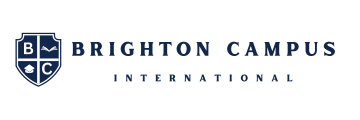Early Childhood Education Assistant (ECEA)
Overview
Get ready to assist early childhood educators in promoting the growth and well-being of young children.
Modules
- Introduction to child development theories and practices.
- Training in creating safe and engaging learning environments.
- Emphasis on effective communication with children, families, and colleagues.
Entry Criteria
- Educational Requirements: Completion of Grade 11 or minimum age of 19.
- Language Assessment : Minimum 60%
- Language Proficiency for Canadian Study Permit : IELTS 5.5, Duolingo 95, TOEFL 46, or equivalent.
Program Details
- Theory Modules : 140 hours
- Practicum : 80 hours (optional)
- Course Duration : 2 Months, 3 Months, 4 Months, 6 Months
- Certificate : Awarded by Maple Bridge Institute, Vancouver, BC, Canada
Take the next step toward your future!
Gain the skills you need for success and take the first step toward a rewarding career. Enroll today to learn essential industry knowledge, enhance your expertise, and open doors to new opportunities.
Intakes
Contact our admissions team today or request information on upcoming program start dates.
Shape the Future Through Early Childhood Education
The Early Childhood Education Assistant (ECEA) program is designed for individuals who aspire to work as assistants to Early Childhood Educators in daycare centers, preschools, and other early childhood settings. This program focuses on creating nurturing, inclusive environments that foster children’s growth through relationships and play. Students will gain the practical skills and theoretical knowledge required to support young children’s development in a safe and supportive environment.
Career Opportunities in CHILDCARE
Become an Essential Member of the Childcare Workforce in Canada
Field placements provide hands-on experience, ensuring graduates are ready to foster positive learning experiences for young children

Early Childhood Education Assistant
Support lead educators in daycare centers and preschools.

Childcare
Worker
Provide care and supervision in various childcare settings.

Recreation Program
Assistant
Assist in children’s recreational and educational programs.
Why Study at Brighton Campus International
Brighton Campus International offers students an inclusive and vibrant learning experience, with dedicated support services to ensure your academic success and personal well-being towards quality life.
- International Experience.
- Choose weekday, weekend, or evening classes to fit your schedule.
- Part-time or full-time class schedule.
- Job-Focused Programs: Practical training for in-demand careers.
- High Employment Rate: Strong industry demand.
- Hands-On Learning: Includes practicum, co-ops, and real-world training.
- Financial Aid Options: Scholarships, student loans, and grants.
- Education Pathways
- Free Visa consultation (*Conditions Apply).
- Free IELTS/PTE/Duolingo preparation classes (*Conditions Apply).
- Support towards Canadian Immigration programs through ECEA experience (*Conditions Apply).



